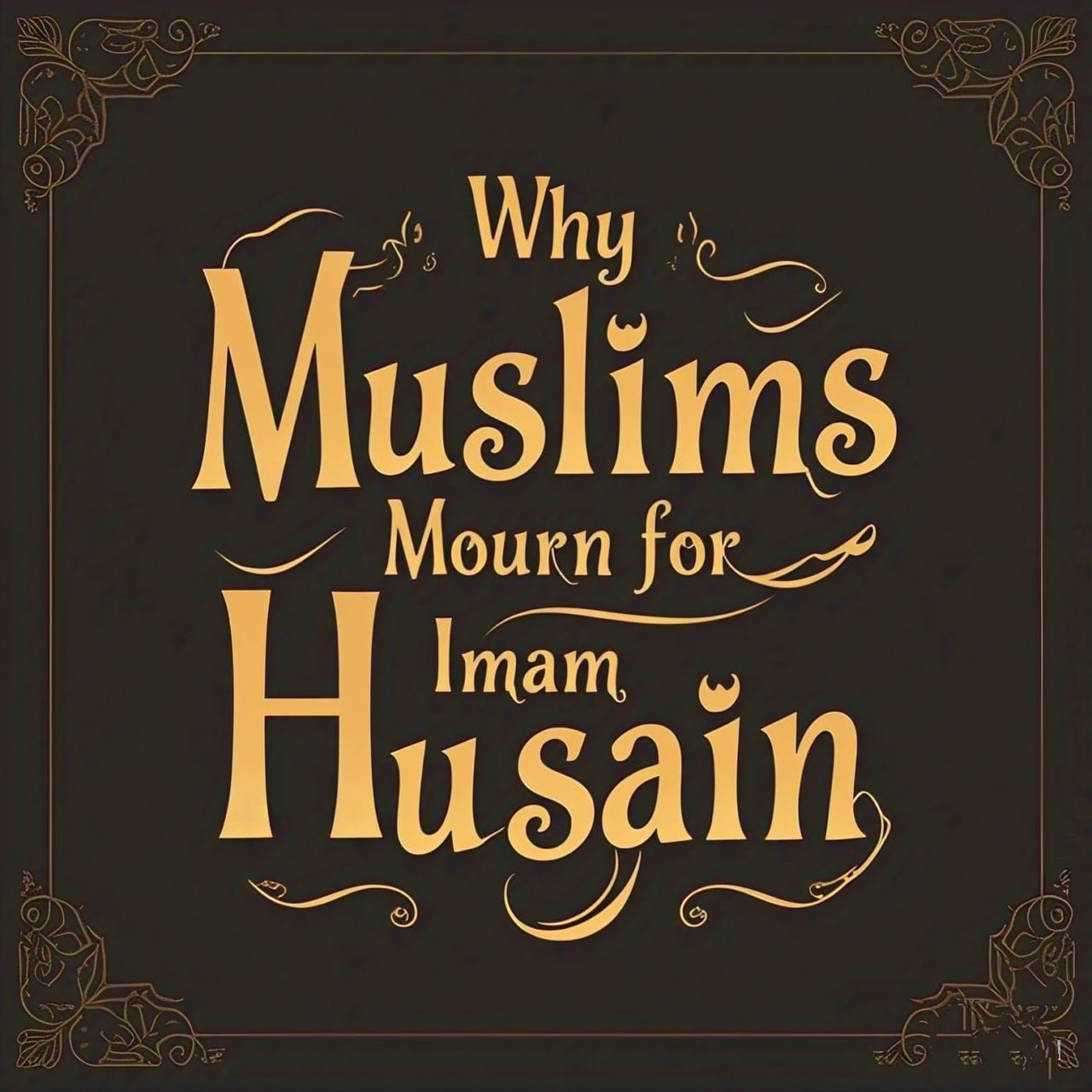Why Muslims Mourn for Imam Hussain (AS)
Every year, during the month of Muharram, millions of Muslims around the world come together to mourn the martyrdom of Imam Hussain, the grandson of Prophet Muhammad (SAWAS). This commemoration reaches its peak on the 10th of Muharram, known as “Ashura” and 20th of Safar known as “Arba’een” The mourning rituals include processions, recitations of elegies, and re-enactments of the tragic events that took place in Karbala in 680 CE. But why do Muslims mourn for Imam Hussain? The reasons are deeply rooted in Islamic faith, history, and values.
The Tragedy of Karbala:
The story of Imam Hussain's martyrdom is a tale of courage, sacrifice, and steadfastness in the face of tyranny. Imam Hussain (peace be upon him) stood up against Yazid ibn Muawiya, the tyrannical ruler of the time, who was appointed by his father Muawiya unlawfully, Demanding allegiance from people by force for him. However, after the death of Muawiya, Yazid came to power illegitimately, and demanded allegiance from Imam Hussain (AS). Imam Hussain (AS) has refused to pledge allegiance to Yazid, as he viewed him as an illegitimate, a corrupt, an unjust and immoral ruler who was trying to destroy the principles and human values set by God in the form of Islam.
On the 10th of Muharram, Imam Hussain, along with 72 of his family members and companions, faced Yazid’s army of thousands in the desert of Karbala, Iraq. Despite being vastly outnumbered and cut off from food and water for three days, Imam Hussain (AS) and his followers stood firm to restore humanity. They were all brutally martyred, and the women and children of his family were taken captive. Imam Hussain (AS) by his unique uprising and martyrdom became the hero for humanity.
Symbol of Justice and Sacrifice:
Imam Hussain’s stand against Yazid is seen as a timeless symbol of resistance against oppression and injustice. His martyrdom is not just a historical event but a representation of the eternal struggle between good and evil. Muslims mourn Imam Hussain to honour his sacrifice and to reaffirm their commitment to justice and truth.
A Lesson in Steadfastness:
The story of Karbala teaches Muslims the importance of steadfastness in faith and righteousness. Imam Hussain knew that he was walking into a trap, yet he chose to sacrifice his life rather than compromise on his principles. This act of unwavering faith and commitment is a source of inspiration for Muslims, reminding them to stay true to their beliefs, even in the face of adversity.
Spiritual Reflection:
Mourning Imam Hussain is also a time for spiritual reflection and self-purification. The rituals and ceremonies associated with Ashura are meant to evoke a sense of empathy and connection with the suffering of Imam Hussain and his family. This period of mourning encourages Muslims to introspect on their own lives, repent for their sins, and strive to lead a more righteous and pious life.
Community and Solidarity:
The mourning of Imam Hussain brings Muslims together, fostering a sense of community and solidarity. The collective remembrance and mourning rituals strengthen the bonds among believers and reinforce the shared values and history of the Muslim Ummah. It serves as a powerful reminder of the importance of unity in the face of oppression and adversity.
Universal Message:
The message of Karbala transcends religious boundaries and holds universal appeal. The themes of justice, sacrifice, and standing up against tyranny resonate with people of all faiths and backgrounds. Many non-Muslims also honour Imam Hussain’s sacrifice, recognizing the universal values he stood for.
The mourning of Imam Hussain is a profound and deeply significant practice in Islam. It is a Sunnah of the Prophet Muhammad (SAWAS) to remember and honour the ultimate sacrifice made by Imam Hussain and his companions for the sake of justice and truth.
To know more about the importance of mourning for Imam Hussain (AS), please watch the next video under the title of “is it allowed to Mourn for Imam Hussain? From the Sunni and Shia perspective”
Findtruth.co.uk










